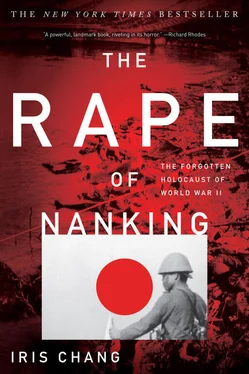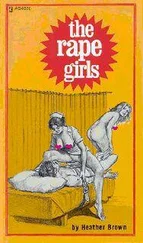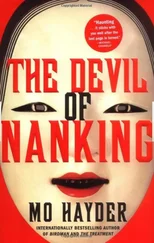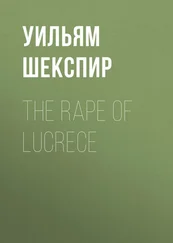188. Also, an oral history interview with one of his friends: Peake and Rosenbaum oral history interview with Smythe.
189. “I am happy I could help you”: Martha Begemann, letter to the author, April 26, 1996.
189. Rabe kept his promise to the Chinese: Description of Rabe’s efforts to publicize the Nanking atrocities and his downfall in Germany comes from Ursula Reinhardt, letters to the author, 1996–97.
190. “My grandfather looked embarrassed”: Ursula Reinhardt, letter to author, April 27, 1996, p. 2.
191. “There is no job for me at Siemens”: John Rabe diary, entry for the years 1945 and 1946, translated September 12, 1996, by Ursula Reinhardt in letter to the author, September 18, 1996.
191. “Last Sunday I was with Mommy”: Ibid.
191. “Now Mommy weighs only 44 kg”: Ibid.
191. “We suffer hunger and hunger again”: Ibid., April 18, 1946.
191. “Yesterday my petition to get de-nazified”: Ibid., April 18, 1946.
192. “If I had heard of any atrocities”: Ibid., April 18, 1946.
192. “On June the 3rd finally I was de-nazified”: Ibid., June 7, 1946.
193. “Today Mommy is out”: Ibid., June 7, 1946.
193. Within a matter of days: Renmin Zibao (People’s Daily), December 25, 1996, p. 6.
193. According to Reinhardt, the family of W. Plumer Mills also sent packages of food (CARE packages) to Rabe, which helped cure him of the skin disease that was caused by malnutrition.
193. The Kuomingtang government even offered Rabe free housing: Ibid.; see also Ursula Reinhardt, letter to the author, April 27, 1996; and Renmin Zibao, December 27, 1996.
193. In June 1948 the city of Nanking learned: Renmin Zibao, December 25, 1996.
194. Rabe died from an artery stroke: Ursula Reinhardt, letter to the author, April 27, 1996.
194. Reinhardt was pregnant and immersed in school examinations: Renming Zibao, December 27, 1996.
194. Rabe’s previous status as a Nazi: Ursula Reinhardt, telephone interview with the author.
195. Shortly after the discovery of the Rabe papers: Peter Kröger, letter to the author, October 23, 1996.
195. “Contrary to the current opinions of the Hitler government”: Kröger, “Days of Fate in Nanking.”
195. The contents were violent beyond her wildest expectations: Renming Zibao, December 27, 1996.
195. She saw the diaries as political dynamite: Ursula Reinhardt, presentation, December 12, 1996, New York City; Reinhardt, telephone interview with the author.
195. She spent fifteen hours: Ursula Reinhardt, letter to the author, December 3, 1996.
195. Shao, who was fearful that right-wing Japanese: Shao Tzuping, telephone interview with the author.
196. “It’s an incredibly gripping and depressing narrative”: David Chen, “At the Rape of Nanking: A Nazi Who Saved Lives,” New York Times, December 12, 1996, p. A3.
196. “What makes this report significant”: Asahi Shimbun, December 8, 1996.
197. “The meaning of this report”: Ibid.
CHAPTER 10: THE FORGOTTEN HOLOCAUST: A SECOND RAPE
201. “People say that the Japanese made a holocaust”: “Playboy interview: Shintaro Ishihara—candid conversation,” David Sheff, interviewer, Playboy , October 1990, vol. 37, no. 10, p. 63.
201. “Japan’s denial of the rape of Nanjing”: Yoshi Tsurumi, “Japan Makes Efforts to Be Less Insular,” New York Times, December 25, 1990.
201. In his rebuttals: Reprinted in Journal of Studies of Japanese Agression Against China (February 1991): 71.
202. “The raping of the women”: John Magee, letter to “Billy” (signed “John”), January 11, 1938, Ernest and Clarissa Forster Collection.
202. “dead bodies in every street alley” : Ibid.
203. “I think the Nanking Massacre and the rest was a fabrication”: Sebastian Moffet, “Japan Justice Minister Denies Nanking Massacre,” Reuters, May 4, 1994.
203. The violent reaction to his statements: Accounts of Nagano being burned in effigy and eggs being thrown at Japanese embassies can be found in Reuters, May 6, 1994. For information regarding his resignation, see Miho Yoshikawa, “Japan Justice Minister Quits over WWII Gaffe,” Reuters, May 7, 1994.
203. “just a part of war”: Karl Schoenberger, “Japan Aide Quits over Remark on WWII,” Los Angeles Times, May 14, 1988.
203. That month Japanese Prime Minister Yasuhiro Nakasone dismissed him: Ibid.
203. “There was no intention of aggression”: Ibid.
203. “I didn’t say Japan wasn’t an aggressor”: Ibid.
203. By May, Okuno had been forced to resign: Ibid.
204. In August 1994, Sakurai Shin: Mainichi Daily News, August 17, 1994.
204. “the Chinese government regrets that”: Kyoto News Service, August 13, 1994.
204. “inappropriate”: Ibid.
204. While Japan was aggressive toward China: Robert Orr, “Hashimoto’s War Remarks Reflect the Views of Many of His Peers,” Tokyo Keizai, December 13, 1994.
204. “went for the money”: “Japanese Official Apologizes,” Associated Press, January 28, 1997.
204. “caused some unpleasantness”: Ibid.
205. In 1990 he was forced to resign from his position: Ibid.
205. The entire Japanese education system: Hugh Gurdon, “Japanese War Record Goes into History,” Daily Telegraph, April 20, 1994.
205. The first thing they wanted to know was who won: New York Times, November 3, 1991. Psychology professor Hiroko Yamaji told me that even Japanese college students have asked him the same question: Which country won World War II, the United States or Japan? (Interview with Yamaji, March 30, 1997, during a workshop in San Francisco.)
206. For example, in 1977 the Ministry of Education: Brackman, The Other Nuremberg, p. 27.
206. “Immediately after the occupation of Nanking”: The passages in Ienaga’s textbooks and the censors’ comments come from “Truth in Textbooks, Freedom in Education and Peace for Children: The Struggle Against the Censorship of School Textbooks in Japan” (booklet) (Tokyo: National League for Support of the School Textbook Screening Suit, 2nd. ed., June 1995).
207. In 1970, when he actually won his case: Buruma, The Wages of Guilt, p. 196.
207. “politically tone deaf”: David Sanger, “A Stickler for History, Even If It’s Not Very Pretty,” New York Times, May 27, 1993.
208. “It was not fair to describe the Nanking atrocity”: Shukan Asahi, August 13, 1982, p. 20.
208. Before Fujio’s dismissal: Information on the treatment of the Nanking massacre in textbooks before and after Fujio’s dismissal comes from Ronald E. Yates, “ ‘Emperor’ Film Keeps Atrocity Scenes in Japan,” Chicago Tribune, January 23, 1988.
209. “The Sasaki unit”: Mainichi Daily News, May 30, 1994.
On August 29, 1997, Ienaga won a partial victory in the last of his three lawsuits against the Education Ministry. The Supreme Court ordered the central government to pay Ienaga 400,000 yen in damages and concluded that the ministry had abused its discretionary power when it forced him to delete from his textbook a reference on live human experiments conducted by the Imperial army’s Unit 731 during World War II. However, the Supreme Court continued to uphold the textbook-screening system itself, ruling that the process did not violate freedom of expression, academic freedom, or the right to education, which are guaranteed under the Japanese constitution. ( Japan Times , August 29, 1997)
Читать дальше











